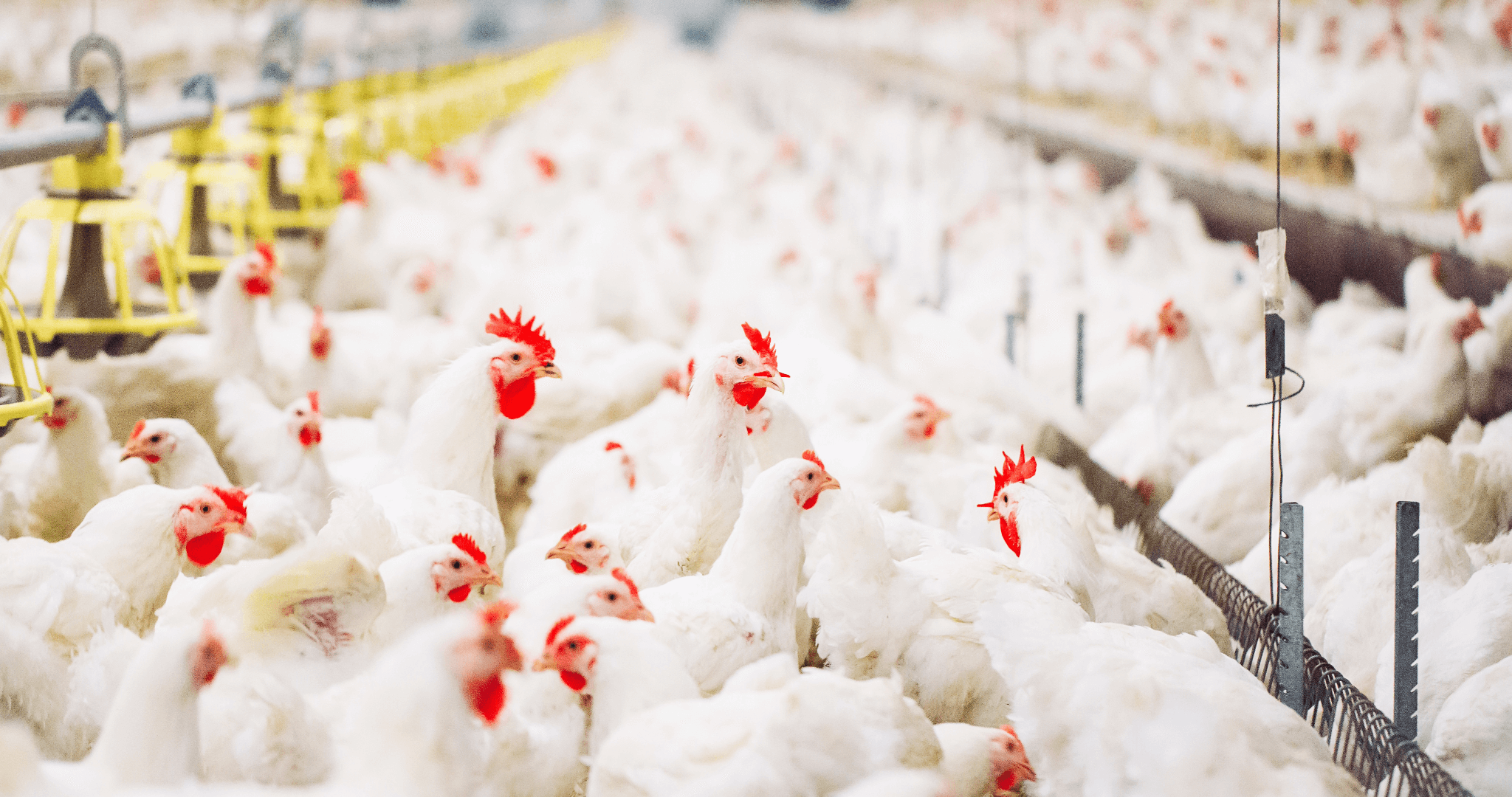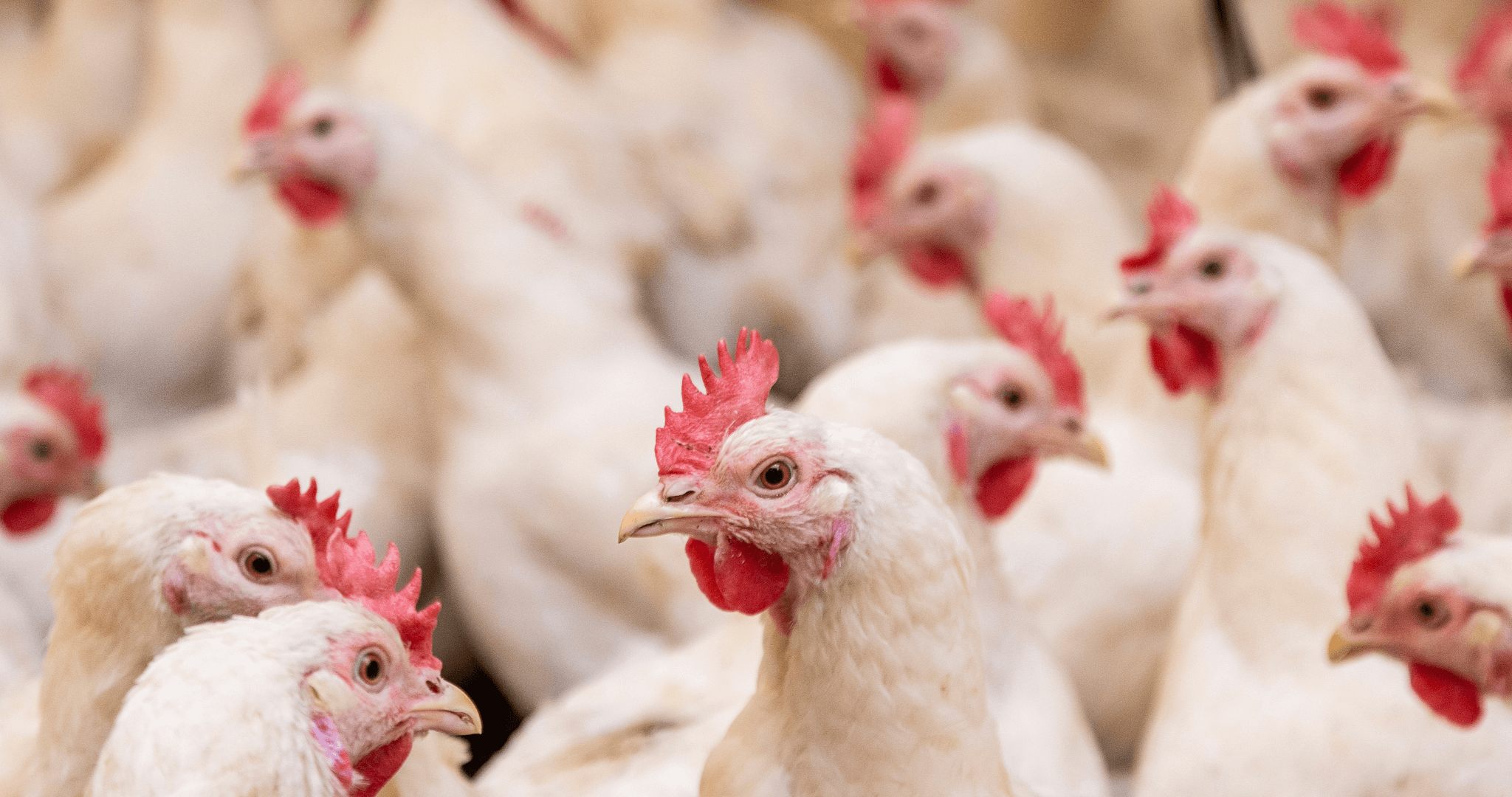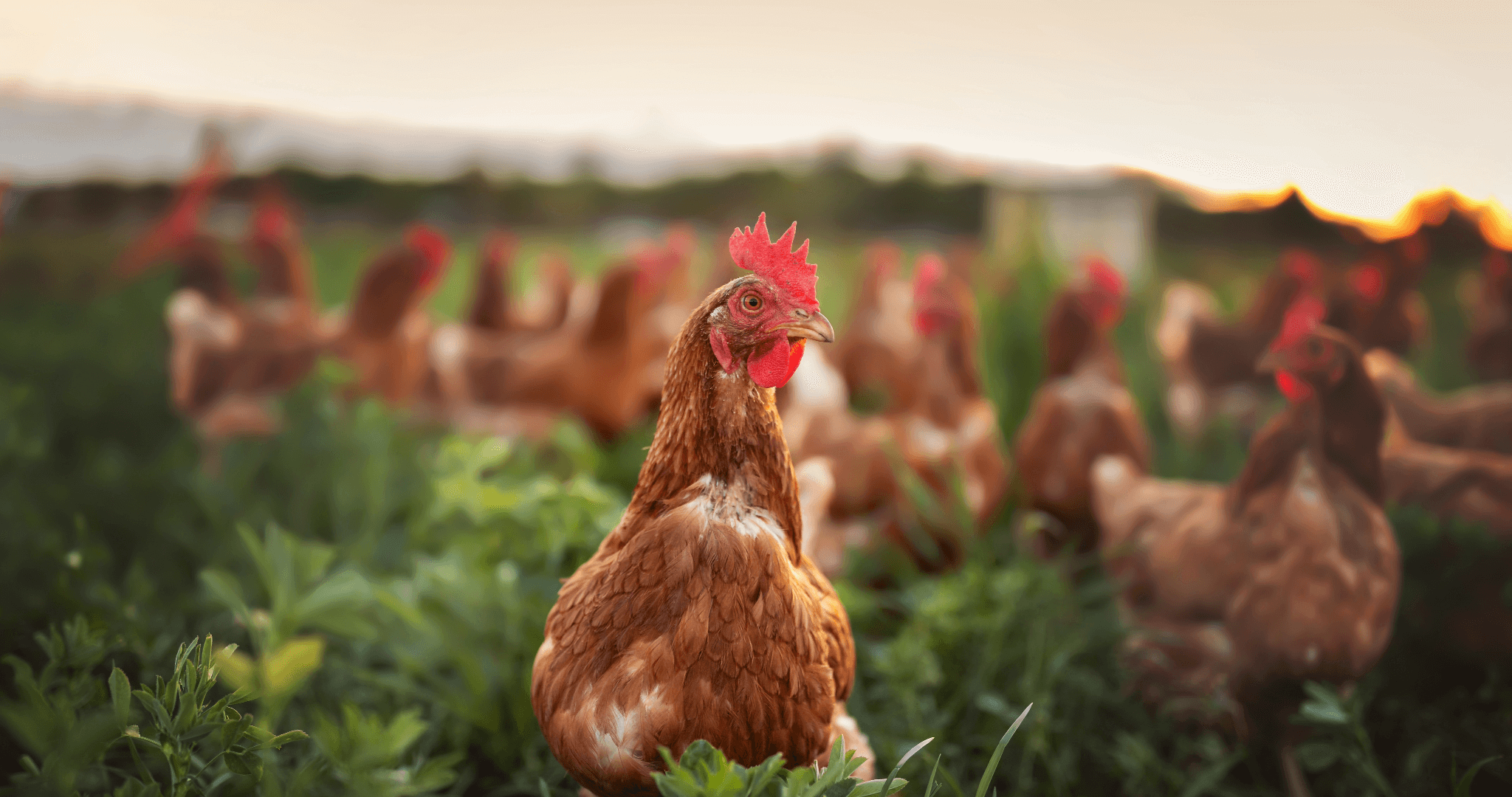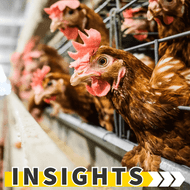Fowl Play? Examining the UK's Reluctance to Adopt the Better Chicken Commitment
Posted by Emma on 1st Dec 2023 Reading Time:
A significant shift in welfare standards has been brewing in the UK's chicken industry. Yet, despite pressing concerns and concerted efforts by activists, the Better Chicken Commitment (BCC) has not seen widespread adoption. This raises the question: Why is the UK lagging in embracing these standards compared to other countries?

In 2008, Hugh Fearnley-Whittingstall's "Hugh's Chicken Run" exposed the grim realities of chicken rearing, cramming 17 chickens into a tiny box in a supermarket car park, sparking public outcry. This set the stage for the BCC in 2018, a unified standard calling for more space, natural light, enrichment, and slower-growing breeds for poultry.
The commitment promises substantial improvements in animal welfare. As the RSPCA notes, retailer adherence to BCC standards could profoundly and positively affect welfare. Yet, in the UK, uptake has been sluggish. While countries like the Netherlands have rapidly embraced these standards, the UK's adoption has been limited, with only M&S and Waitrose fully committing to BCC by 2026.
Where do retailers stand on Better Chicken Commitment?
| Aldi | Has a range of welfare tiers in fresh chicken, but not BCC. |
| Asda | Has a range of welfare tiers in fresh chicken, but not BCC. |
| Co-op | Has reduced stocking density to 30kg per m2 but has not utilised slower-growing breeds. |
| Lidl | Has a range of welfare tiers in fresh chicken, but not BCC. |
| Marks & Spencer | BCC-compliant in fresh chicken, other categories targeted to become BCC by 2026. |
| Morrisons | Sells some lines that meet BCC standards. |
| Sainsbury’s | Has reduced stocking density to 30kg per m2 but has not utilised slower-growing breeds. |
| Tesco | Sells some lines that meet BCC standards. |
| Waitrose | Plans to become 100% BCC compliant in 2026. |
Retailers face increasing pressure from campaigns, High Court battles, and undercover investigations to adopt these standards. M&S, a pioneer in implementing BCC, reveals the complexity and benefits of this transition. The transition to Oakham Gold, using slower-growing breeds, took extensive planning and collaboration. The move has not only improved welfare measures but also enhanced M&S's ethical appeal, aligning with consumer preferences for ethically sourced meat.
However, the switch to BCC standards is not without challenges. The cost of raising chickens under these standards is approximately 15% higher than conventional methods, reflecting higher retail prices. During a cost of living crisis, this presents a dilemma for major supermarkets. Moreover, a shift to slower-growing breeds could disrupt the trade balance of poultry, potentially leading to reliance on imports that may not meet domestic standards.
Animal welfare organisations like The Humane League UK persist in their advocacy despite understanding the challenges posed by external factors like the pandemic and economic crises. For them, the absence of BCC adoption is inexcusable. They emphasise the pivotal role of major retailers in transforming welfare standards across the supply chain.

The debate extends to the nuances of poultry welfare. While some, like RSPCA's Kate Parkes, stress the importance of ending the use of faster-growing breeds, others highlight broader sustainability and environmental impacts. Slower-growing birds require more resources and have a higher environmental footprint.
The British Poultry Council points out that slow-growing breeds might hinder efficiency and productivity, impacting the environment and production costs. In contrast, Dr. James Bentley from Hubbard argues for a balanced approach, considering welfare, production costs, and environmental impacts.
As the UK grapples with these challenges, the BCC remains a focal point in the industry. The narrative around 'Frankenchickens' continues to fuel the debate, leaving retailers to decide on their approach to poultry welfare standards.
Chicken Labelling Guide
| Label | How The Chicken Lives | Score |
| Soil Association |
|
5/5 |
| RSPCA Assured Free Range |
|
5/5 |
| Red Tractor Free Range |
|
4/5 |
|
RSPCA Assured |
|
4/5 |
| Red Tractor Enhanced Welfare |
|
4/5 |
| EU Organic |
|
3/5 |
| Red Tractor |
|
1/5 |
| EU Minimum Legislation |
|
0/5 |
Be aware that phrases such as 'trusted farms', 'trusted farmers', 'butcher's choice' and 'reared with care' do not have a legal definition you can rely on.
The Better Chicken Commitment Explained
The BCC is a set of standards aimed at improving broiler welfare. It requires compliance with EU animal welfare laws, a maximum stocking density of 30kg/m2, the adoption of higher welfare breeds, improved environmental conditions, no cages or multi-tier systems, and controlled atmospheric stunning or effective electrical stunning without live inversion. Compliance is to be demonstrated through third-party auditing and annual public reporting.

This commitment responds to growing consumer concerns about animal welfare and food quality. Surveys indicate that a significant majority of UK consumers prioritise ethically sourced meat. The BCC aims to address issues such as muscular myopathies in chickens, which are linked to rapid growth and large breast muscles.
In conclusion, while the Better Chicken Commitment offers a path to improved animal welfare and meets consumer demands for ethical food sourcing, its adoption in the UK faces significant hurdles. From cost implications to sustainability concerns, retailers are navigating a complex landscape.
We encourage you to share your opinions on this critical issue, particularly considering its impact on business practices and ethical standards in the food industry.

